The Supreme Court of Canada has ruled that the federal carbon tax is constitutional. The court said today it had dismissed an appeal by several provinces. In a 6-3 split, the court said that reducing greenhouse gas emissions is “a matter of national concern.” Ontario, Alberta and Saskatchewan had challenged the Greenhouse Gas Pollution Pricing […] Read more
Tag Archives carbon tax
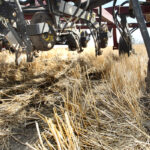
Farm groups push for carbon recognition
The Saskatchewan Soil Conservation Association (SSCA) is encouraging the province’s farmers to participate in a review of the Government of Canada’s proposed Greenhouse Gas (GHG) Offset Credit System regulations. The proposed regulations are open for a 60‐day comment period that concludes May 5. Farmers can click here to learn more about the proposed rules. The […] Read more
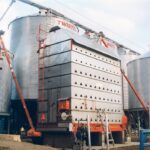
Feds missed boat on exempting grain drying from carbon tax
Agriculture minister Marie Claude Bibeau had plenty of time to add grain drying as an eligible exemption under the federal carbon pricing plan, but ruled out doing so last year. She and her colleagues shouldn’t now be standing in the way of cross-partisan support to address the issue. Let’s recap to see how we got […] Read more
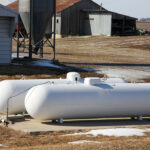
Carbon tax exemption elusive for heating fuel
Private members bill working its way through Parliament would exempt grain drying, but heating fuel remains unclear
Carbon tax relief may be coming soon for Canadian farmers who use propane or natural gas to dry grain. But it remains to be seen if that relief will also be extended to grain farmers and livestock producers who use propane and natural gas to heat barns and other essential farm buildings. Last month, Bill […] Read more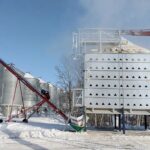
MP defends grain drying bill at committee
A bill offering financial relief from carbon pricing for farmers drying grain recently came before a parliamentary committee. On March 9, MPs sitting on the standing committee on agriculture had a chance to question the bill’s creator, Conservative MP Philip Lawrence. The proposed law reached committee after receiving support from each party outside of the […] Read more

The carbon crunch
The world must cut agricultural emissions by an estimated two-thirds by 2050 to help fight climate change while simultaneously producing 50 percent more food, said an American researcher. Serious efforts must be made to put “real money into what I call collaborative projects … where farmers, scientists, the private sector are working together to explore […] Read more
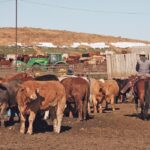
Beef sector’s sustainability defended
It is vital to separate fact from fiction when it comes to climate change and the Canadian beef industry, said an expert. “Really, what we’re talking about here in most agricultural systems is trade-offs,” said Tim McAllister, principal research scientist for Agriculture Canada in Lethbridge. “There’s no one system that’s perfect.” However, he said Canada’s […] Read more

Sustainability focus may benefit canola
Fertilizer is a sustainability risk for the crop, but carbon sequestration may be an opportunity due to no till
Palm oil has a reputation problem. In 2019, 41 percent of respondents in a United Kingdom survey said palm oil was “environmentally unfriendly”. That number was much worse than other vegetable oils — only nine percent said rapeseed oil (canola) is environmentally unfriendly, five percent for sunflower and two percent for olive oil. Sustained campaigns […] Read more
Low carbon footprint seen as marketing edge
Farmers need to flip some of today’s annoying consumer demands into tomorrow’s advantages, says an agricultural representative turned full-time farmer. Embracing those consumer priorities might be one of the few things that can make up for the Prairies’ landlocked position. “What if the new quality isn’t just talking about the protein content of our wheat, […] Read more
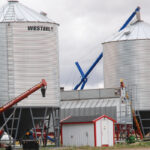
Farmers reassured on grain drying costs
More prairie people are needed at the centre of the federal government, Jim Carr told the Canadian Crops Convention March 3. And with everything that society has learned from the trend toward working remotely during the pandemic, that’s more possible than ever to make real. “I think there are going to be some significant changes […] Read more




